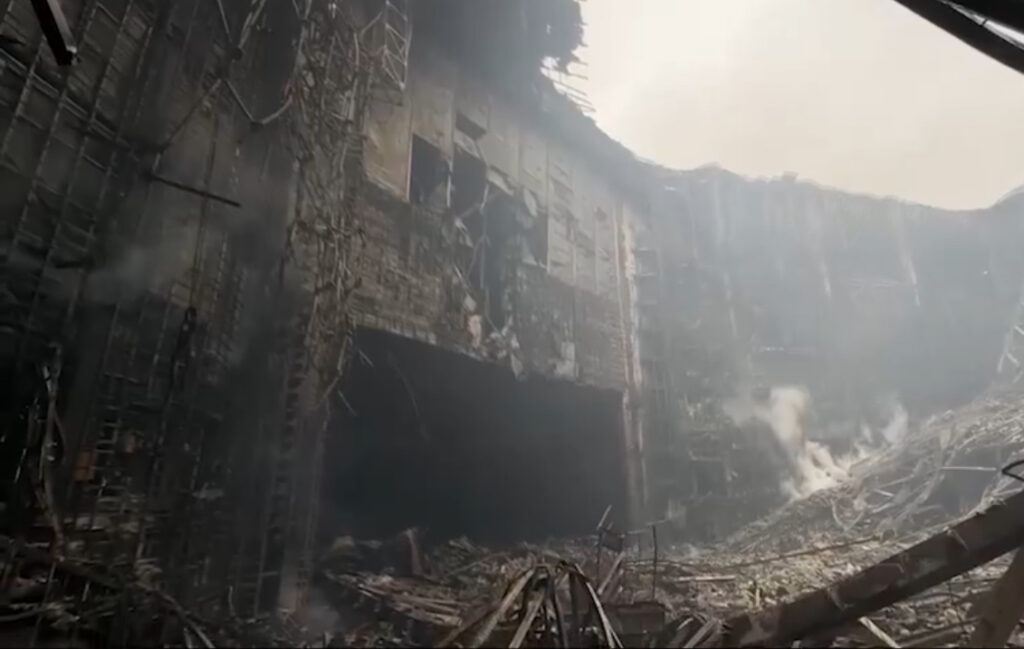Moscow Attack Updates

133 people are now confirmed dead, but there are assailants in custody.
The Russian authorities said Saturday that they had arrested the four people responsible for a mass killing and arson at a suburban Moscow concert venue, which left at least 133 people dead in one of the worst terrorist attacks to jolt Russia in decades.
The Islamic State claimed responsibility for the brutal attack late Friday, raising fears of a global resurgence by the extremist group. U.S. officials said they believed the atrocity was the work of a branch of the terrorist group known as the Islamic State in Khorasan, or ISIS-K, which has been active in Pakistan, Afghanistan and Iran.
When this hit I cautioned everyone to keep their powder dry and allow the evidence to tell the story. There are some… gnarly elements in and around the Ukrainian intelligence services and while this action seemed extreme Ukrainian involvement could not be ruled out. But people often forget that a) Russia occupies vast territories populated predominantly by Muslims, b) Russia has waged a brutal war of terror in order to subjugate some of those territories, and c) Russia has been a target of radical Islamist terror in the past. Consequently, allegations of ISIS-K involvement easily pass the smell test.
Nevertheless, Putin is unsurprisingly trying to pin some of the blame on Ukraine:
“They were trying to hide and were moving toward Ukraine,” Mr. Putin said, referring to the four men who carried out the attack and who the Kremlin said had been captured in western Russia. “Based on preliminary information, a window for crossing the border was prepared for them by the Ukrainian side.”
Ukrainian officials have repeatedly denied having anything to do with the attack, and American officials have said there is no evidence of Ukrainian involvement. American officials voiced concern on Friday that Mr. Putin could seek to falsely blame Ukraine for the attack, and some analysts and Kremlin critics have said that he could use such an accusation to justify another escalation in Russia’s invasion.
Mr. Putin has in the past blamed the West for stoking terrorist groups to commit violence inside Russia, but he did not refer to the United States or the West in Saturday’s speech. Nor did he mention the March 7 security alert issued by the United States Embassy in Moscow about the risk of attacks on concerts in the Russian capital, which pro-Kremlin figures have used as evidence of possible American complicity.
Russia has determined to orient its foreign policy around the destruction of Ukraine to the exclusion of just about every other priority; naturally, this has the potential to bite back very hard. I’d have some pretty serious reservations at this point about Russia’s capacity to do basic management of its borderlands given the manpower burden of the war and of industrial mobilization. In fairness, preventing terrorist attacks is a percentage business in the best of times, but there seems little doubt that the preoccupation of Russia’s security services with Ukraine has left other avenues of attack open.
For its part, the Biden administration continues to chart new pathways in the field of intelligence diplomacy:
The United States collected intelligence in March that Islamic State-Khorasan, known as ISIS-K, the branch of the group based in Afghanistan, had been planning an attack on Moscow, according to officials. ISIS members have been active in Russia, one U.S. official said.
After a period of relative quiet, the Islamic State has been trying to increase its external attacks, according to U.S. counterterrorism officials. Most of those plots in Europe have been thwarted, prompting assessments that the group had diminished capabilities.
It is difficult to convey how alien it is for the intelligence community to be as open as it has been during the Biden administration; these are people and institutions to whom secrecy is second nature, and they are professionally inclined to offer as little information to the public as possible. In any case, I suspect that the collapse of US-Russia relations over the past two years has made it much harder for Russia’s security services to take seriously the provision of US intelligence about likely attacks.


